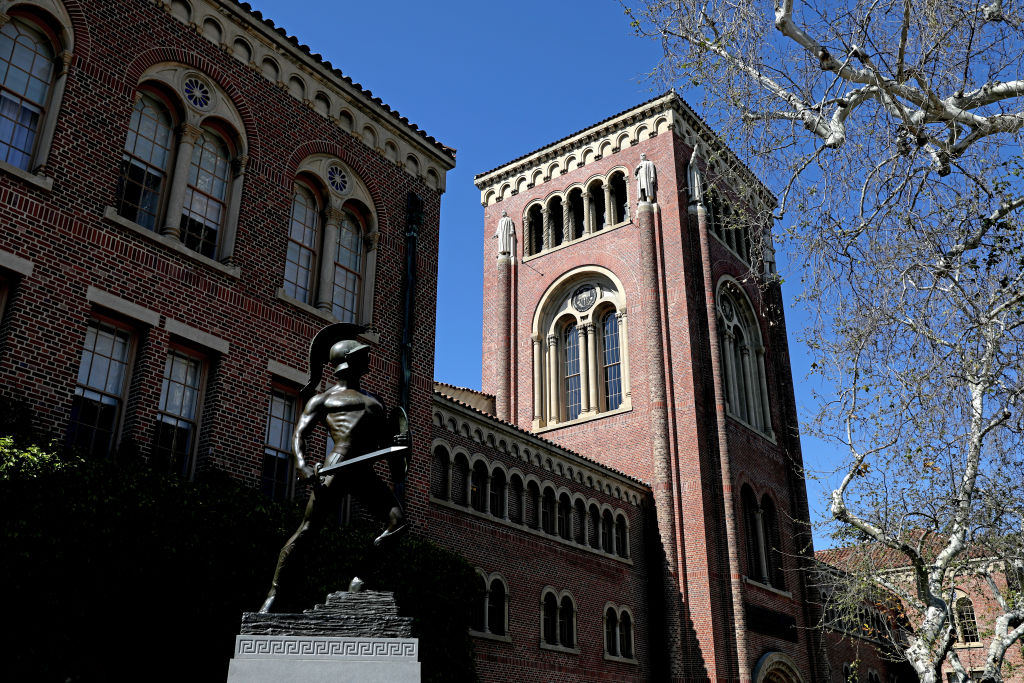USC and OPM 2U End Relationship After 2022 Lawsuit
 Credit: Image Credit: Gary Coronado / Los Angeles Times / Getty Images
Credit: Image Credit: Gary Coronado / Los Angeles Times / Getty Images- USC and online program manager 2U will mutually dissolve the partnership over the next 15 months.
- According to an internal investigation, USC Rossier faculty and administration knew the university withheld data from the U.S. News & World Report rankings.
- The students suing USC and 2U alleged they were misled into enrolling at USC Rossier due to inflated school rankings.
- 2U received 60% of tuition revenue from USC’s online students, according to the lawsuit.
The University of Southern California (USC) and online program manager 2U are ending their partnership after a 2022 lawsuit alleged students were misled by the USC Rossier School of Education withholding information from the U.S. News & World Report rankings.
USC and 2U announced in a Nov. 9 joint statement a mutual end to their decade-long partnership providing online graduate degree programs. The two will transition the delivery and administration of the 2U-managed programs to the university over the next 15 months.
“Reflecting upon our decade-long journey, 2U and USC have consistently promoted the importance and potential of high-quality online education in USC Rossier, USC Suzanne Dworak-Peck School of Social Work and the USC Iovine and Young Academy,” the statement said.
“We are proud of the robust foundation that this relationship has helped to lay for these programs, which are well-poised for future success. Both 2U and USC remain excited and optimistic about what the next chapter holds for online education.”
In 2022, USC students sued their institution and 2U, alleging they withheld graduate education data from the U.S. News & World Report’s “best graduate education schools” list to inflate USC Rossier’s rankings.
According to the lawsuit, the students using the rankings felt they were misled into enrolling in USC Rossier because the school left out most doctoral student data, making the school appear more selective than it was.
“Driven by the false perception that USC Rossier is a ‘top-ranked’ program, hundreds of students enrolled in [USC’s] online degrees every year,” the lawsuit states.
“Further, USC Rossier’s artificially-inflated US News ranking has enabled [the institution] to charge these students significantly higher tuition than these students would pay if they attended other online or in-person graduate education programs in California.”
According to the lawsuit, 2U claimed 60% of all tuition revenue from the school’s online students, incentivizing aggressive recruitment strategies.
The Wall Street Journal previously reported that USC Rossier intentionally misreported information to U.S. News & World Report at the knowledge of a vice president for admissions, former Dean Karen Symms Gallagher, senior faculty, and others.
USC Rossier’s current dean, Pedro A. Noguera, who took over for Gallagher in 2020, withdrew the school from the rankings after an internal investigation and apologized for the school’s misinformation.
“The most shocking thing to me was that this wasn’t done in secret,” Noguera said in an interview with The Wall Street Journal. “Even though the way they answered the questions seemed strange or questionable, the fact that the people around me said, ‘Well this is the way we’ve done it,’ I thought, ‘Well, this must be legitimate.’ I should have sought verification immediately.”